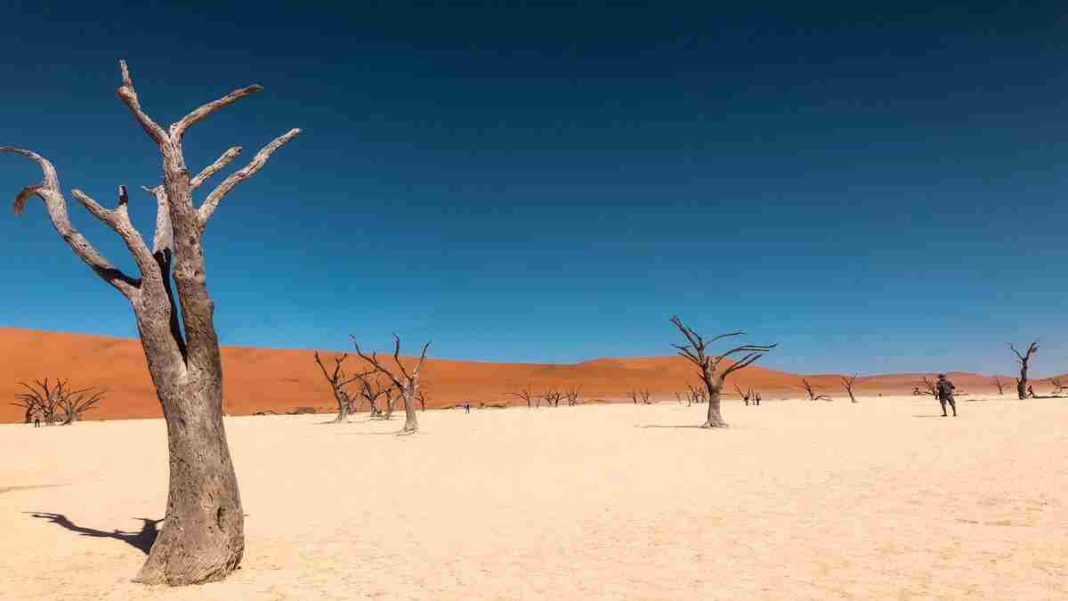AFRICA: Recent research has shown that the human-caused effects of the climate catastrophe have caused a severe drought in the Horn of Africa, affecting 50 million people and 100 million people in the surrounding area. This has caused acute food insecurity and even famine, threatening 20 million people.
The area has experienced the worst drought in 40 years since October 2020, with long stretches of dry weather interspersed with brief, powerful rainstorms. At least 4.35 million people require humanitarian aid and 180,000 refugees have fled to Ethiopia and Kenya from Somalia and South Sudan due to the drought.
Human activities have caused a prolonged drought in the region due to a lack of rainfall and increased temperatures caused by global warming. This has caused the soil and grassland to be drier than they would typically be due to a lack of rainfall and increased temperatures. This has caused more water to evaporate from the ground and plants.
The analysis concluded that recent rainfall patterns would not have caused a drought in a world that was 1.2C colder. Climate change had increased the likelihood of droughts like the present one by approximately 100. This study shows that drought is much more than just the lack of rain and that the impacts of climate change depend on how vulnerable we are.
Climate change has caused an increase in rainfall in the Horn of Africa, with long rains from March to May and a short rainy season from October to December. Rainfall is concentrated in two seasons, with long rains from March to May and a short rainy season from October to December.
The long rains are drying up due to the climate crisis, making it twice as likely that this season will experience little rainfall than previously. The short rainy season is becoming wetter.
This study found that frequent multi-year droughts and heat extremes in the main rainy season will have a severe impact on food security and human health in the Horn of Africa. The researchers stressed that people’s vulnerability and resources for coping with the effects are also factors in food shortages and the possibility of famine.
The Horn of Africa is facing a humanitarian calamity due to five seasons of below-average precipitation, livelihoods depending on the rain, and vulnerability-expanding factors such as conflict and state fragility.
A study was conducted by 19 researchers as part of the World Weather Attribution group, which uses well-established models and techniques to examine whether events can be connected to the effects of the climate crisis. The study was carried out by 19 researchers as part of the work of the World Weather Attribution group.
Also Read: Spain Prepares for Sweltering Heat, Drought Tightens Grip in Some Regions



